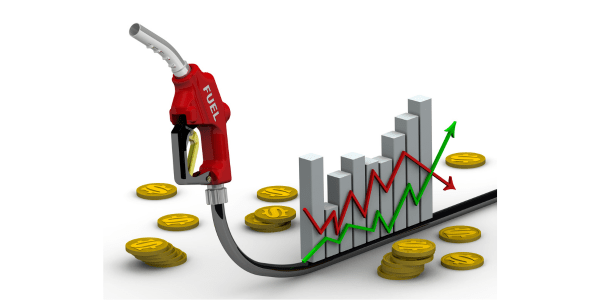In a time where inflation affects every corner of daily life, from groceries to utilities, managing vehicle-related expenses becomes an essential part of personal and collective financial responsibility. Among these expenses, tyres and fuel stand out as two of the most frequently recurring costs for drivers. Whether you’re an individual car owner, a rideshare driver, a logistics fleet operator, or a small business dependent on transportation, saving money on tyres and fuel isn’t just a personal win—it’s a shared responsibility that benefits society at large.
The Importance of Cost-Saving in Transportation
Transportation costs form a significant portion of household and business budgets. Fuel prices fluctuate based on global oil markets, taxes, and supply chain logistics, often rising without warning. Tyres, while not replaced as often as fuel is consumed, are a major investment every few years or after specific mileage limits. For businesses with multiple vehicles, tyre and fuel costs can make or break annual profits. Finding ways to reduce these costs can significantly improve financial well-being, both at the individual and macroeconomic levels.
Tyre Maintenance: The First Line of Defense
Proper tyre maintenance is one of the most effective and overlooked ways to save money. Underinflated or overinflated tyres not only wear out faster but also lead to increased fuel consumption. Maintaining the manufacturer-recommended tyre pressure ensures even wear, better road grip, and optimal fuel efficiency. It’s a simple step that many drivers neglect, yet it has a long-term impact.
Wheel alignment and rotation are also essential. Misaligned wheels cause uneven wear and decrease the lifespan of tyres. Regularly rotating tyres—every 8,000 to 10,000 kilometers—ensures that all tyres wear evenly, extending their lifespan and delaying the need for replacement. Additionally, balancing tyres prevents vibration and unnecessary strain on the vehicle’s suspension system.
Investing in high-quality tyres can also offer long-term savings. While they may cost more upfront, premium tyres often offer better durability, improved fuel economy, and superior performance under various driving conditions. In contrast, cheap tyres might wear quickly or underperform in emergencies, potentially leading to costly accidents or early replacements.
Driving Habits Matter
Your driving behavior directly impacts both tyre wear and fuel consumption. Aggressive driving—rapid acceleration, hard braking, and high-speed cornering—shortens tyre life and burns more fuel. On the other hand, smooth and steady driving not only enhances safety but also minimizes unnecessary strain on the vehicle.
Using cruise control on highways, coasting instead of braking hard, and anticipating traffic flow can result in meaningful savings over time. Avoiding excessive idling, especially in traffic, is another good habit, as a running engine consumes fuel even when the car isn’t moving.
Fuel Efficiency Starts with Smart Planning
One of the best ways to save fuel is to drive less. This may sound obvious, but it’s often overlooked. Combining errands into a single trip, carpooling, or using public transportation can significantly reduce fuel usage. Planning your route to avoid traffic congestion or roadworks can also improve mileage.
Modern navigation apps often include real-time traffic updates and can suggest fuel-efficient routes. Moreover, keeping your vehicle’s engine well-maintained—changing oil, replacing air filters, and ensuring the exhaust and ignition systems are functioning properly—keeps fuel consumption in check.
Lighten the Load
Every extra kilogram in your vehicle reduces fuel efficiency. Remove unnecessary items from your car’s trunk or backseat. Roof racks or carriers that aren’t in use should also be removed, as they increase wind resistance and drag, forcing the engine to work harder and consume more fuel.
Similarly, using air conditioning continuously, especially at low speeds or in stop-and-go traffic, puts an additional load on the engine. While comfort is essential, using AC wisely can contribute to lower fuel consumption.
Tyre Selection and Seasonal Awareness
Choosing the right tyre type for the season or terrain can lead to better performance and cost savings. For instance, using winter tyres during summer conditions leads to faster wear and poorer fuel economy. Similarly, using all-season tyres in extreme winter conditions can compromise safety and vehicle control.
Select tyres based on your location, driving habits, and weather conditions. It’s also wise to buy tyres with high fuel-efficiency ratings. Many tyre manufacturers now produce models that are specifically designed to reduce rolling resistance, which in turn reduces fuel consumption.
Business and Environmental Impact
Businesses that operate fleets—taxis, delivery vans, or transport trucks—stand to gain the most from tyre and fuel savings. Instituting driver training programs focused on fuel-efficient driving techniques can reduce company-wide fuel consumption significantly. Similarly, regular maintenance schedules and investment in quality tyres can prevent unplanned downtime and extend vehicle life.
Moreover, the environmental benefits of conserving fuel and tyres cannot be understated. Reduced fuel usage means lower greenhouse gas emissions. Longer-lasting tyres reduce rubber waste and the environmental footprint associated with their production and disposal.
Final Thoughts
Saving money on tyres and fuel is not just a personal goal—it’s a collective responsibility. Better driving habits, routine maintenance, smart planning, and conscious purchasing decisions create a ripple effect. Individuals save more. Businesses operate more efficiently. And society benefits through reduced pollution and more sustainable consumption patterns.
In an interconnected world, the steps we take toward efficiency don’t exist in isolation. They contribute to broader goals of economic stability, environmental protection, and road safety. Whether you drive a compact car or manage a fleet of trucks, remember: when it comes to tyres and fuel, saving isn’t just smart—it’s everyone’s business.



